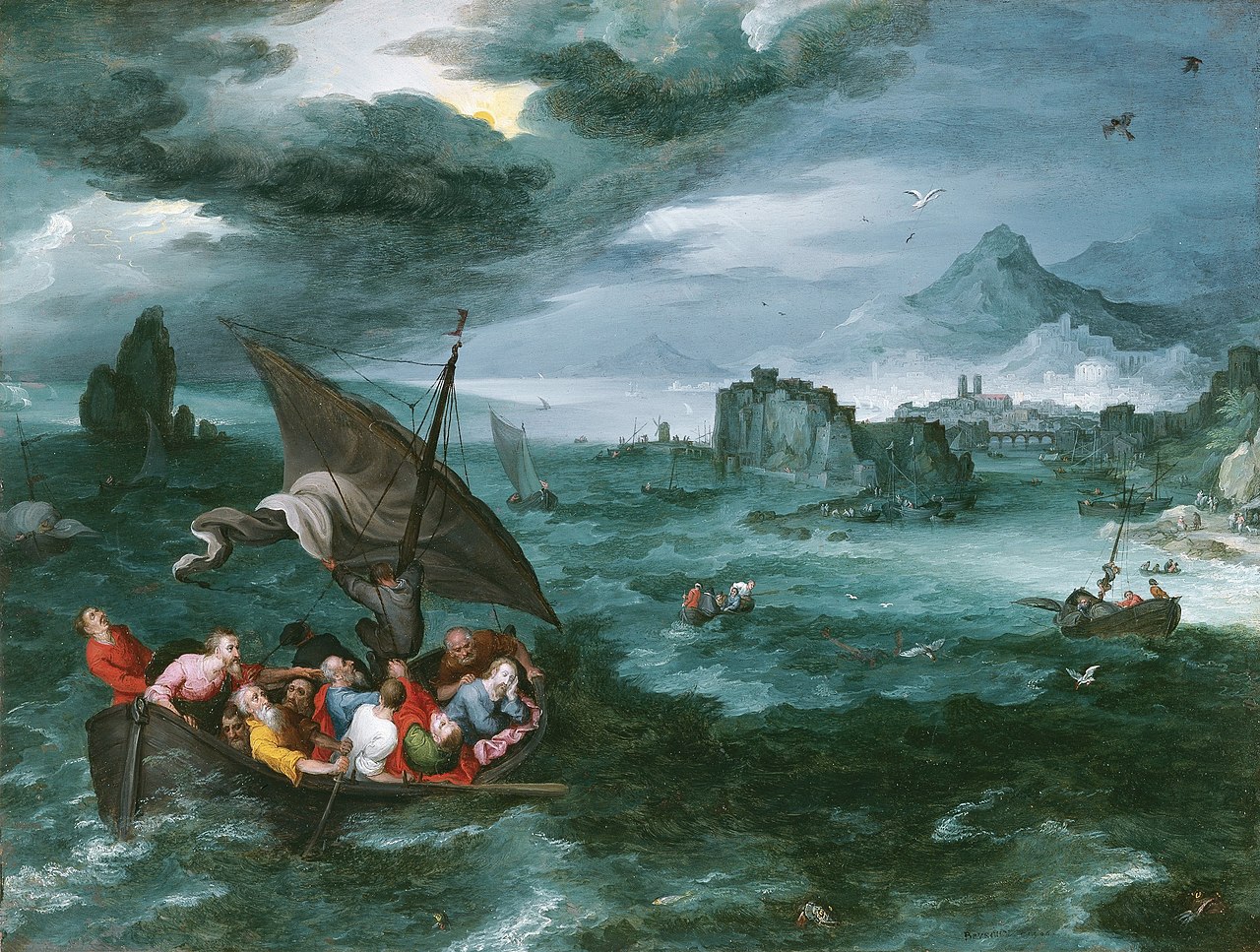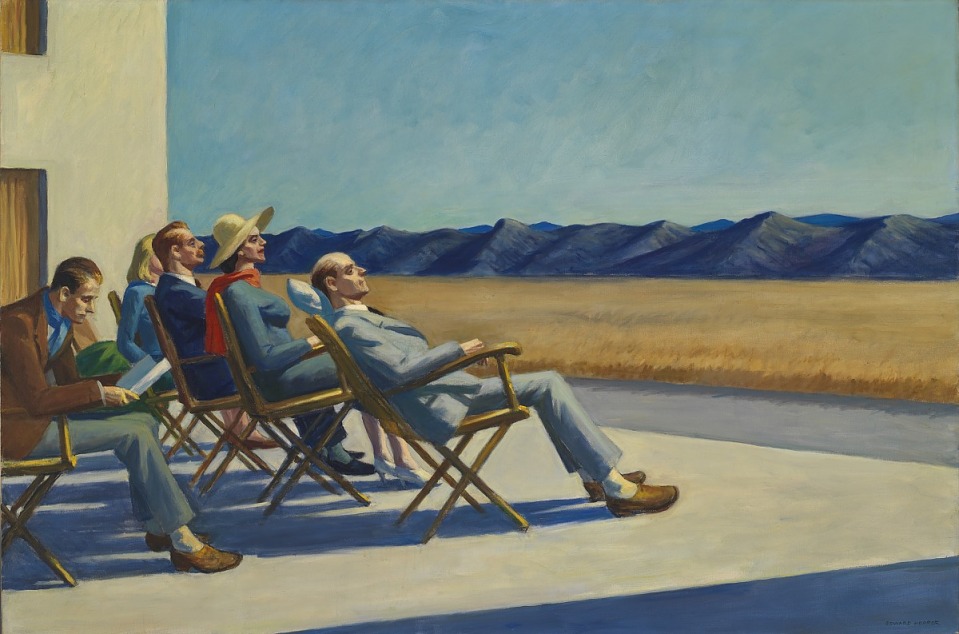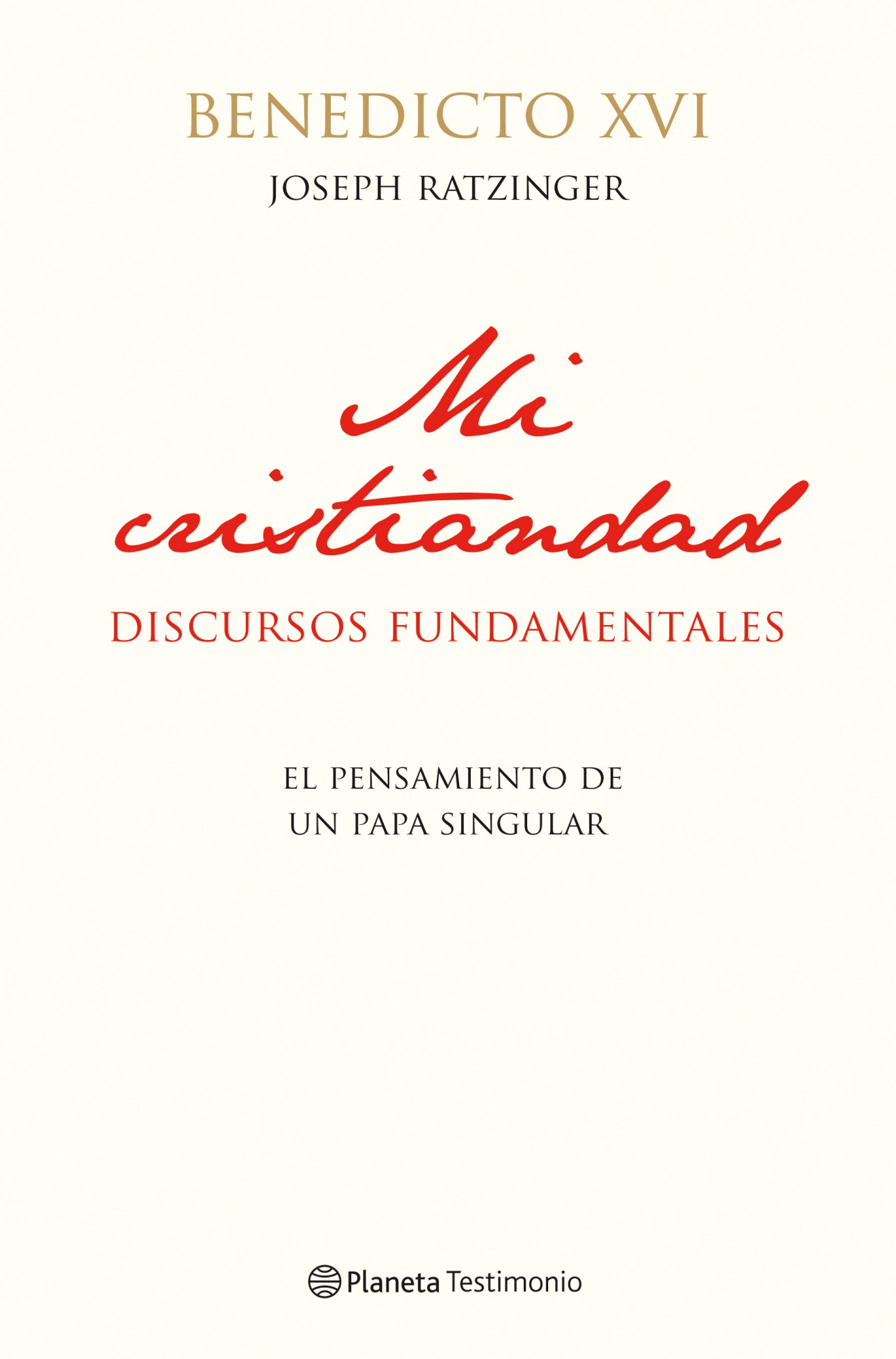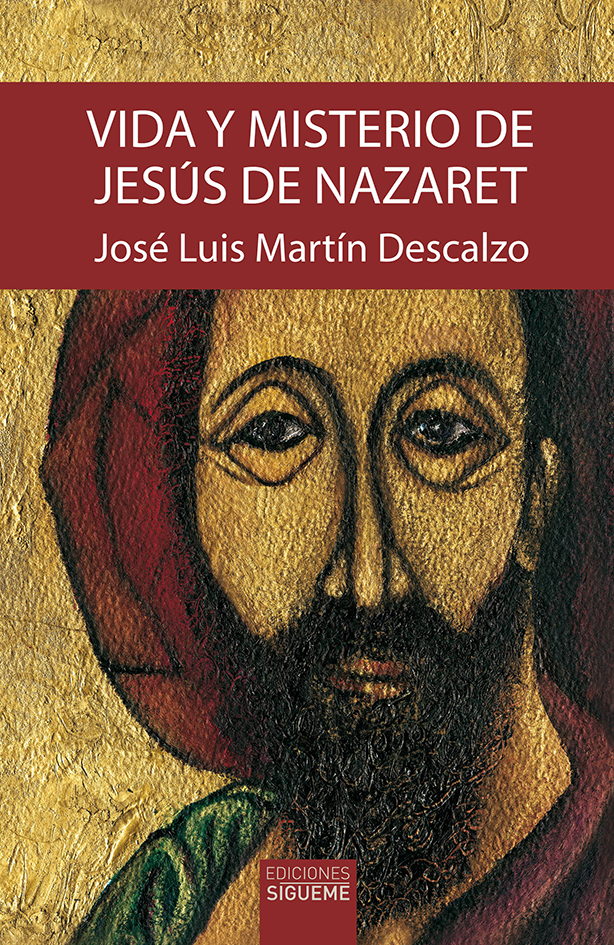
Jan Brueghel, Christ in the Storm on the Sea of Galilee (1596), oil on canvas, Thyssen Museum (Madrid)
Who is this whom even the wind and sea obey?” Jesus’ disciples asked in today’s Gospel. Jesus conquered the sea. But only God could take control of the sea. The disciples had been terrified. Jesus said that they should not have been afraid. They needed to have faith in Him. There is a great deal of chaos in our world and in our individual lives. We have to have faith in the Lord to be with us through the chaos. Think about those who died for the faith, the martyrs. So many of them were surrounded by people jeering at them, mocking them, hurting them, killing them. They kept their faith in the Lord, and even those who were horribly tortured died in the peace of knowing that they were returning to the God they refused to reject. In this way God was present through the chaos. All of us have experienced episodes of chaos in our lives. There are times that we feel that everything is falling apart. Most often we did not cause the chaos. We are victims of a world that has chosen the material over the spiritual, a world that has rejected God. Bad things happen to good people. A member of our family becomes chronically ill. Our family’s life suddenly revolves around caring for him or her. Everyone in our family needs to muster up all the strength we have to help our loved one fight the sickness. Or, perhaps there is a sudden accident and a lasting ailment like paralysis or tragic death or deaths. We might feel that our world is falling apart. It is then that we have to remember that the Lord is on the ship with us. We need faith. The One who conquers the sea, will conquer the chaos of our lives. Worse, there are times that we are responsible for the chaos. We fall into sin and then experience what our sin has done to our family as well as to ourselves. We willingly chose what is destroying us and those we love. We know that we have caused this. We deserve whatever is happening to us. But our family doesn’t deserve what is happening to them. Do we dare to ask the Lord to get us out of the mess we have created? Yes. We have to trust in Him. He is on the ship of our lives. No matter what we have done, God can control the storm. He calls out to us in the middle of the storm to have faith in Him, to trust Him, to allow Him to conquer the storm. The problem is that we, you and I, often don’t have the faith in God we need. We see the chaos within us and don’t even consider that God is stronger than the chaos. So, this morning is time for faith, the faith we need to trust in the Lord to conquer our chaos • AE

Antonio Vivaldi wrote a set of flute concertos, Op. 10, that were published c. 1728 by Amsterdam publisher Michel-Charles Le Cène. This is the Flute Concerto No. 1 called, La Tempesta di Mare (The Storn in the sea)
St. Dominic Catholic Church • Weekend Schedule

Saturday June 22, 2024
12.30 p.m. XV Mass for Amber Oliva – Fr. Agustin E.
3.00 p.m. Sacrament of Reconciliation – Fr. Agustin E.
5.00 p.m. Holy Mass – Fr. Agustin E.
Sunday, June 23, 2024
7.30 a.m. Holy Mass – Fr. Dennis Darilek
10.00 a.m. Holy Mass – Fr. Dennis Darilek
12.30 p.m. Holy Mass – Fr. Stuart Juleen
3.00 p.m. Santa Misa – Fr. Enda M.
XII Domingo del Tiempo Ordinario (Ciclo B)

Hoy en dia apenas y hablamos de la Providencia de Dios. Es un lenguaje que ha ido cayendo en desuso o que se ha convertido en una forma piadosa de considerar ciertos acontecimientos. Se habla de un hecho «providencial» cuando se produce un suceso feliz e inesperado. Sin embargo, creer en el amor providente de Dios es un rasgo básico del cristiano. Todo brota de una convicción radical: Dios no abandona ni se desentiende de aquellos a quienes crea, sino que sostiene su vida con amor fiel, vigilante y creador. No estamos a merced del azar, el caos o la fatalidad. En el interior de la existencia está Dios, conduciendo nuestro ser hacia el bien.
Esta fe no libera de penas y trabajos, pero nos enraíza a los creyentes en una confianza total en Dios, que expulsa el miedo a caer definitivamente bajo las fuerzas del mal. Dios es el Señor último de nuestras vidas. De ahí la invitación de la primera carta de san Pedro: «Descargad en Dios todo agobio, que a él le interesa vuestro bien».
Esto no quiere decir que Dios intervenga en nuestra vida como intervienen otras personas o factores. La fe en la Providencia ha caído a veces en descrédito precisamente porque se la ha entendido en sentido intervencionista, como si Dios se entrometiera en nuestras cosas, forzando los acontecimientos o eliminando la libertad humana. No es así. Dios respeta totalmente las decisiones de las personas y la marcha de la historia. Por eso, no se debe decir propiamente que Dios guía nuestra vida, sino que ofrece su gracia y su fuerza para que nosotros la orientemos y guiemos hacia nuestro bien. Así, la presencia providente de Dios no lleva a la pasividad o la inhibición, sino a la iniciativa y la creatividad.
No podemos olvidar tampoco que si bien podemos captar signos del amor providente de Dios en experiencias concretas de nuestra vida, su acción permanece siempre inescrutable. Lo que a nosotros hoy nos parece malo, puede ser mañana fuente de bien. Nosotros somos incapaces de abarcar la totalidad de nuestra existencia; se nos escapa el sentido final de las cosas; no podemos comprender el menor acontecimiento en sus últimas consecuencias. Todo queda bajo el signo del amor de Dios, que no olvida a ninguna de sus criaturas.
Desde esta perspectiva adquiere toda su hondura la escena del evangelio de hoy en el lago de Toberíades. En medio de la tormenta, los discípulos ven a Jesús dormido confiadamente en la barca. De su corazón lleno de miedo brota un grito: «Maestro, ¿no te importa que nos hundamos? Jesús, después de contagiar su propia calma al mar y al viento, les dice: «¿Por qué son tan cobardes? ¿Aún no tienen fe?» AE

lEcturAs pArA eL vERanO

E. Hopper, People in the Sun (1960), óleo sobre tela, Smithsonian American Art Museum (Washington)



